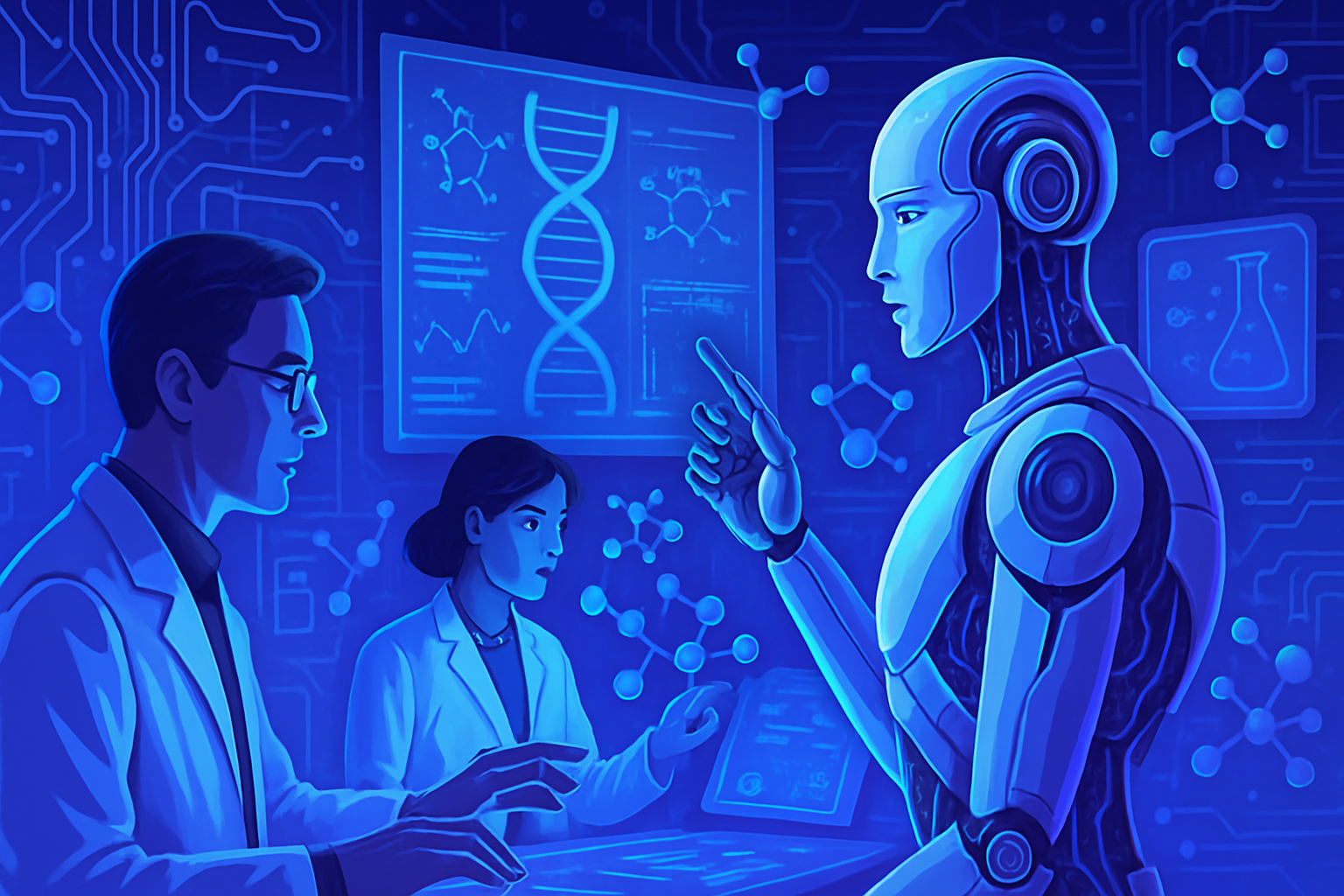The acceleration of scientific discovery represents a monumental challenge in the current research landscape. The introduction of artificial intelligence in this field is not just a simple technological trend. This advancement offers innovative solutions to optimize traditional processes often obstructed by increasing complexities.
*Scientists are struggling against declining productivity, and unprecedented collaborations are essential.* Through agile synergies between humans and AI, it becomes conceivable to eradicate historical bottlenecks. *AI tools, by automating essential tasks, reposition research priorities* while stimulating innovation.
Contemporary challenges require bold approaches to catalyze a new era of discoveries in the scientific field.
Declining Scientific Productivity
Numerous studies have highlighted a decrease in scientific productivity over the past fifty years. Discoveries now require more time, funding, and larger teams than before. The increasing complexity of research and its specialization imply a considerable amount of time dedicated to reviewing publications, designing complex experiments, and analyzing data.
An Innovative Response: FutureHouse
In light of this alarming finding, the research lab funded by philanthropists, FutureHouse, has developed an artificial intelligence platform to accelerate the scientific discovery process. This innovative device consists of AI agents specialized in various tasks, ranging from information retrieval to data analysis, as well as designing chemical syntheses and synthesizing information.
The Inspiration Behind FutureHouse
Sam Rodriques, one of the founders of FutureHouse, drew his inspiration from his doctoral research at MIT on how the brain functions. He found that assuming to hold all necessary knowledge about the brain was unproductive, mainly due to the lack of time to explore existing scientific literature. This realization fueled his vision of creating a system capable of solving major scientific problems.
The Capabilities of AI Agents
The developers at FutureHouse aimed to create distinct AI tools to facilitate tasks such as searching for publications and analyzing data. Among these innovations, the PaperQA program was created, allowing for the retrieval and summarization of information from the scientific literature. Another advancement, a device called Has Anyone, helps scientists verify if similar experiments have been undertaken before.
A Harmonization of Tools
On May 1st of this year, FutureHouse officially launched its platform, renaming some of its tools to enhance their accessibility. PaperQA is now Crow, while Has Anyone is known as Owl. Other agents, like Phoenix and Finch, demonstrate the ability to optimize chemical experiment planning and automate discovery based on biological data.
Practical Demonstrations of Capabilities
On May 20th, the company presented a multi-agent scientific discovery workflow, automating key steps to identify a promising candidate for a new therapy for age-related macular degeneration. In June, FutureHouse announced ether0, a reasoning model with 24 billion parameters for chemistry.
Accessibility and Impact for Researchers
The agents from FutureHouse are now accessible to everyone via their platform, sparking significant interest within the scientific community. Researchers have reported promising results, including the discovery of a gene linked to polycystic ovary syndrome and the development of a new treatment hypothesis for this condition.
FutureHouse’s Vision Ahead
Rodriques believes that integrating agents with raw data tools from research publications could ensure the reproducibility of results and the validation of conclusions. The future looks promising, with the goal of enriching the agents with tacit knowledge, allowing them to perform more sophisticated analyses.
FutureHouse aspires to equip its agents with advanced models and analysis tools commonly used in scientific research. Initiatives aimed at building an infrastructure that allows agents to leverage specialized scientific tools are proving essential.
For more information on advancements in artificial intelligence applied to scientific research, exploring articles on AI systems and biology, or computer vision, may prove enriching for professionals in the field.
Frequently Asked Questions about Accelerating Scientific Discovery through Artificial Intelligence
How can artificial intelligence accelerate the scientific research process?
Artificial intelligence (AI) can automate tasks such as data collection, analysis, and information synthesis, allowing scientists to focus on more critical aspects of their research.
What steps of the scientific process can be improved by using AI?
Steps such as literature research, hypothesis generation, experimental design, and data analysis can all be optimized through AI, making the process more efficient and faster.
How are AI agents different from traditional research tools?
AI agents, like those offered by FutureHouse, go beyond simple search engines by providing contextual analysis, personalized recommendations, and a deep understanding of scientific data.
How can I integrate the use of artificial intelligence into my current research?
It is possible to use AI platforms like that of FutureHouse to automate literature searches, generate hypotheses, and perform complex analyses while maintaining control over the direction of your research.
Are the results generated by artificial intelligence reliable and reproducible?
AI agents are designed to provide analyses based on existing data; however, it is essential for researchers to verify the accuracy of results and conduct reproducibility tests on their findings.
What skills are necessary to effectively use AI tools in scientific research?
While technical training is beneficial, users must primarily be able to understand research questions and interact with AI to leverage its capabilities.
How does AI adapt to multidisciplinary research?
Modern AI platforms are designed to integrate data and case studies from various disciplines, fostering collaboration and knowledge exchange among scientific fields.
What is the potential impact of AI on the time required to make scientific discoveries?
The integration of AI can potentially reduce research time significantly, allowing scientists to make discoveries more quickly and effectively address pressing societal issues.






